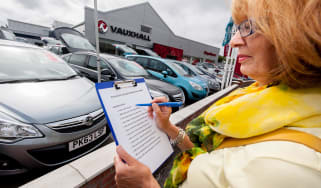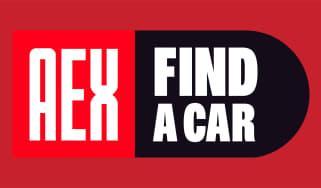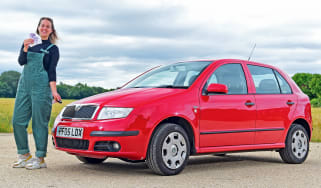How to buy or sell a car at auction and get a great price
Buying or selling a car at auction can be both a fun and daunting experience. Our car auction guide should make it more of the former and less of the latter
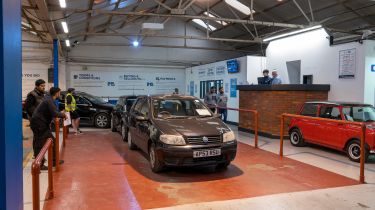
Car auctions have often been seen as places exclusively for savvy used car traders or experienced buyers from dealership groups to buy and sell stock, but this isn’t always the case. Many car auction houses are open to the public, in person and online. In fact, car auctions are great places for individuals to buy or sell a car quickly, you just need a few pointers to keep you on the right track.
If you’re planning on buying or selling at an auction, our complete guide has all the information you need to confidently buy or sell under the hammer.
What are car auctions?
There are plenty of car auctions of various kinds taking place around the country every week. From larger auction houses like Manheim or BCA (British Car Auctions), to smaller, specialist classic car or even ex-police car auctions, meaning there are all kinds of opportunities for buyers and sellers to quickly make some money or get the keys to a new car on the cheap. A car auction is any sale room where cars are presented and lots and people are invited to bid on them.
Car auctions are not to be confused with online auctions like eBay, where you generally have quite a long time to make your play. At the busiest car auctions, the action around a car you’ve had your eye on can play out in seconds – so if you blink you can miss it. In such a frenetic atmosphere it is vital to do your research in advance and stick to your budget.
If you’ve never been to an auction, don’t be put off by the presence of representatives of large dealership groups or used car salesmen. Not all auctions are open to the public, so be sure the auction house you are buying or selling through allows public bidding. If you are worried that you’ll be out of your depth or stitched-up and hung out to dry by auction traders, read on for our top tips as we explore the pros, cons and guide you through the process of buying or selling a car at auction.

Buying a car at auction: the process
Buying a car at auction is simple. Before the auction takes place, you will need to register to bid. This may be by creating an online account or registering to bid in person on the day.
Lots can be viewed either the day before or the day of the event. If you are unable to view in person, an online catalogue will be available in the days leading up to the sale which outlines the cars in the auction and their condition. Some auction houses also provide a video walkaround of each car being sold.
Once bidding starts, cars will be driven through the sales room in the order they appear in the catalogue, alternatively pictures will be shown on screens and in virtual rooms online. The auctioneer will set an asking price. Assuming someone matches that price with a first bid, other bidders will raise the price until there are no more bids.
The car will be sold to the highest bidder when the hammer comes down, assuming any reserve price set by the seller has been met. Once payments and paperwork has been completed, the highest bidder will own the car.
Choosing what car to bid on
As with all used car purchases, the most important thing is to inspect the vehicle you’re going to buy.
A day at the auction can be both exciting and nerve-wracking, so you’ll want to turn up early so you get a chance to look over any cars you plan to bid on. Auction buyers can check each car going under the hammer either online prior to the event or in the physical catalogues handed out at the auction house. Most catalogues provide a description of the car, detail its history and grade its condition.
You should also get a feel for how much similar vehicles are selling for by checking previous auction results or used car pricing guides. They'll help you set a ballpark figure of how much you should be willing to pay.
After doing the homework you can narrow the field down by inspecting your chosen vehicles on the day. There is usually a window before the auction starts where the cars are lined up and buyers can have a walk around and inspect them. Some auction houses set time aside the day before for viewing, while others set a few hours before the auction starts, so it’s best to check beforehand.
Some auction houses will provide independent checks of the cars they sell, but if you're confident enough, it’s always advisable to work your way through the basics yourself. Simple checks of the engine, bodywork, electrical systems, interior trim and tyres will give you a general idea of the car's condition, as well as any service history or MOT history.
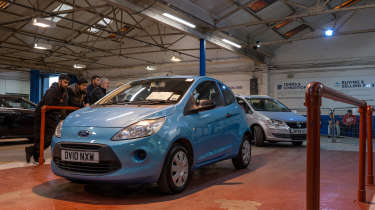
What happens when the auction starts?
Once the selling starts, vehicles are driven into the auction hall one after another. The car for sale stops in front of the rostrum and the auctioneer describes the car to the crowd. Some auction houses have static displays and will show a picture of the car on screens around the room.
It’s really important to listen to what the auctioneer says, as their description is a legally binding statement. The description by the auctioneer supersedes any of the previous lot descriptions in the printed catalogue or written online. Below are some key phrases and what they mean:
- ‘No major mechanical faults’ – indicates the car should not have faults with engine, suspension, drivetrain or gearbox.
- ‘Specified faults’ – the auctioneer will read out the list of faults, pay careful attention here.
- ‘Sold as seen’ – the vehicle is sold with any of the faults it may have, the auction house will rarely accept any complaints about the mechanical or cosmetic condition of these vehicles after sale.
- ‘Sold with a warranted mileage’ - the mileage has been verified by an independent inspection and the car is sold on the basis of the report.
After that, the auctioneer will ask for a starting bid, with bidding typically done in £100 or £200 increments. However, it is not unusual for the bidding to go up via £1,000 intervals if the car is highly valued.
How to bid
It’s recommended to go to at least three or four auctions without actually purchasing anything to help you get a feel for the process, the overall speed and the type of stock available while avoiding any expensive mistakes. Some auction houses are specific on what form of payments they accept so be sure to check you have the right type of credit or debit card before heading to the auction.
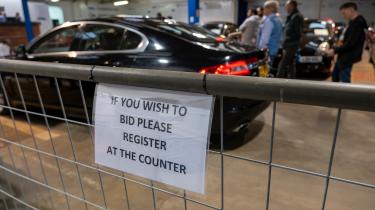
Bidding is done by raising your hand or the catalogue and will continue until there are no more bidders left in the room or online. The highest bid buys the car and that’s when the hammer comes down. Bidding is often fast paced, so make sure you keep up with the prices and the amount of people bidding on the car.
Buying a car at auction: what happens after the sale?
If you are the top bidder at the end of the auction, you will need to submit a deposit – usually 10 per cent of the vehicle's value – which is normally paid to the rostrum clerk. However, some auction houses can ask for 20 per cent of the vehicle value or £500, whichever comes first. After this, you’ll be directed to the cashier’s office, where the documents will be signed and the rest of the car paid.
You will also need to pay a buyer’s fee on top of the purchase price, usually around four to six per cent of the price of the car, auction house depending. Once the hammer has fallen, it is your responsibility to ensure the car is properly taxed, insured and road legal before being driven on the public highway.
Auction houses may offer speciality or temporary insurance or vehicle moving companies who can help transport your new purchase home.
Five top tips for car auction first timers
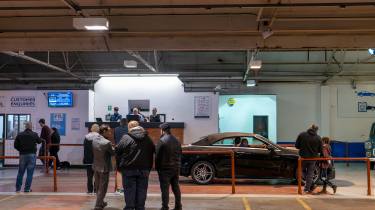
Our top-five tips will help you get the best deal at a car auction and avoid any costly mishaps...
- Do your homework: know what you want to buy beforehand and have a good idea of what the car will be worth.
- Don’t rush: Arrive in good time and spend your time looking around. If possible, select a few back-ups in case the bidding goes beyond your budget for your first choice of car.
- Check the car: Take the opportunity to inspect the vehicle to the best of your abilities, while some cars come with a independent inspection guarantee, it’s still good practice to go over the body work and mechanicals.
- Be flexible: It’s unlikely you will find the ‘perfect’ car at an auction, used cars always come with a history, so be realistic when critiquing potential buys.
- Set a budget: It’s easy to get lost in the heat of auction bidding, set yourself a maximum budget and do not go over it. There will always be another car. Remember, you will still have to buy insurance and tax the vehicle and setting aside some money for service costs is always good practice, too.
Buying a car at auction: pros and cons
Buying a car at auction has its pros and cons. Here are things to consider:
| Pros | Cons |
| There’s usually a varied choice of cars on offer | You can’t test drive beforehand |
| Buying is quick and simple |
No opportunity for a detailed mechanical inspection |
| No pressure to bid if you don’t want to | No warranty - cars are sold as seen |
| Can offer good value for money | Car may require work before legally drivable |
| No haggling required | If you win the auction, you have to buy |
Selling a car at auction
Providing you are the registered keeper and have legal ownership, consigning your car to be sold at auction is a fairly straightforward process without too much trouble attached.
Once you have chosen the auction house you wish to sell through, staff will provide any details you may need, such as if and when they would like to assess your vehicle, take photographs, create the auction description and provide a valuation.
Next, your chosen auction house will provide a time and date for your car to be dropped off or collected for holding at their premises or the auction site. There will probably be a fee for your car to be listed in the auction.
Most of the paperwork will be completed by the auction house, but before you consign your car, make sure you’re prepared. By doing the following checks you’ll increase the likelihood that your vehicle sells and does so for the best price possible:
- If your car requires an MOT, do this before the auction. It could help increase demand for your vehicle and the overall price it fetches when bidding starts.
- Make copies and collect all of all the relevant documents attached to your car, including the V5C logbook, service history and records, garage receipts and vehicle handbook.
- Clean your car, either on your driveway or using a professional valeting service. Making your car look its best could help improve buyers’ first impressions.
- Get your car independently valued beforehand, so you know how much your car could fetch before it is auctioned and you can set a realistic reserve price.
If you have misplaced your V5C, it is still entirely possible and legal to sell a car at auction without it. However, getting a replacement beforehand is well worth the investment, as some buyers will be deterred from bidding on a car which doesn’t have one as it can often be seen as a sign of a stolen car.
Selling your car at online auction houses
The process for selling your vehicle via an online auction house is very similar to the process outlined above. While you may have to answer more detailed questions and take pictures of your car yourself, an agent will help guide you through the process. As with physical auctions, any fees should be communicated by the auction house upfront.
How to set an auction reserve price
A reserve price is the fixed minimum amount that you want your car to sell for. When deciding a reserve price, it’s highly recommended that you take on the advice of the auction house. Not only will they want your car to sell for as much as possible so they get more commission on the sale, they will also have good knowledge on what your vehicle could achieve when it goes under the hammer.
Getting your car independently valued before discussing a reserve price will help give you an independent idea of how much your car is worth.
If your car fails to meet the reserve price, it doesn’t necessarily mean the car has failed to sell. The auctioneer may invite you and the buyer to settle, or negotiate a compromise sale price between you, outside of the auction bidding environment.
What if my car doesn’t sell at auction?
Any car with no reserve price attached is likely to sell. The only way your car will fail to sell without a reserve price is if there are no buyers who place a bid on your car.
Failing to attract any bids that meet the reserve price means your car won’t be sold and any bids are void. The auction house may invite you to re-auction the car in the next event.
If you are close to meeting the reserve price, you may be able to negotiate a sale with the highest bidder, or you may wish to re-auction the car at the next auction. If you fail to attract any bidders or your car has been in multiple auctions and failed to sell, you may wish to remove your car from the auction and sell privately. Be wary though as you may still have to pay the auction fees.
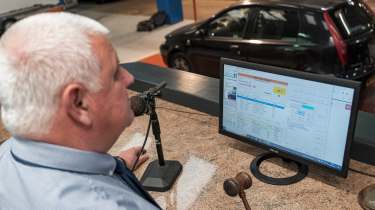
What happens after you sell a car at auction?
Once all the bids are placed, the winning bidder will pay the auction house for the car. If you haven’t already handed over any service history or the V5C logbook, you will need to do this first. Once all the paperwork has been completed, you will receive the payment from the auction house, minus any outstanding fees.
Selling a car at auction: pros and cons
Selling a car at auction has its pros and cons. Here are things to consider:
| Pros | Cons |
| Quick way of selling your car | Your car isn’t guaranteed to sell |
| Paperwork is completed by the auction house | There may be no potential buyers present |
| Reduced risk of time wasters, the winning bidder has to buy | You may have to pay extra fees |
| You may get more money than you expected |
Will be without your car for the duration of the auction process |
Did you know you can sell your car with Auto Express? Get the highest bid from our network of over 5,500 dealers and we'll do the rest. Click here to try Auto Express Sell My Car now...
Find a car with the experts




